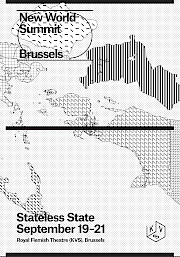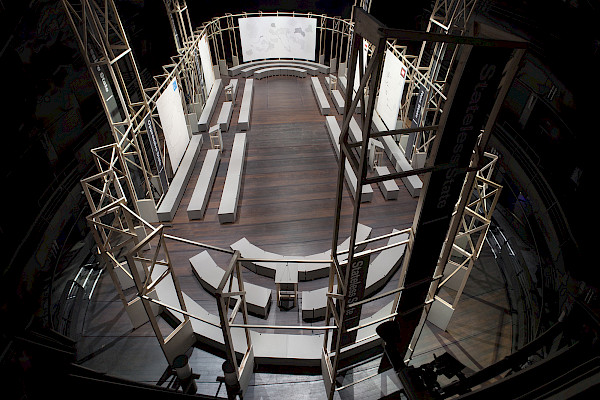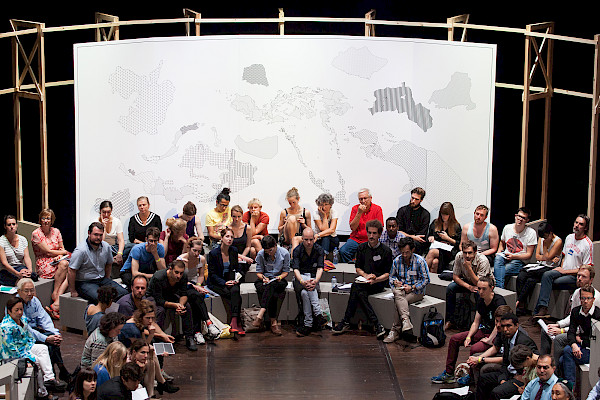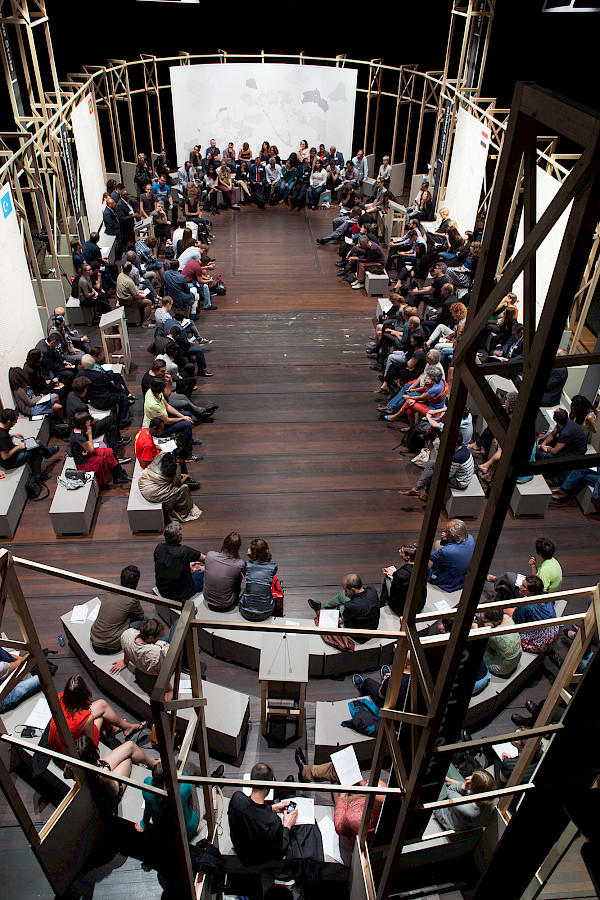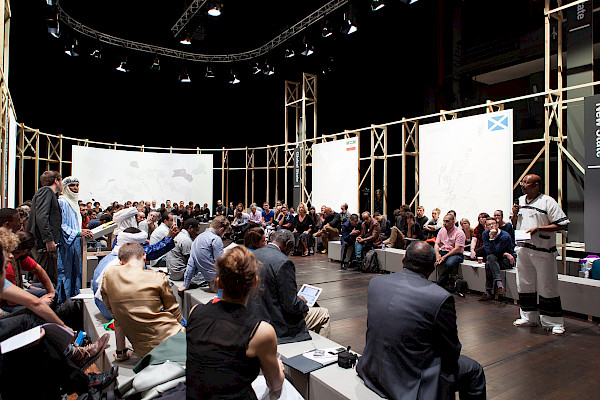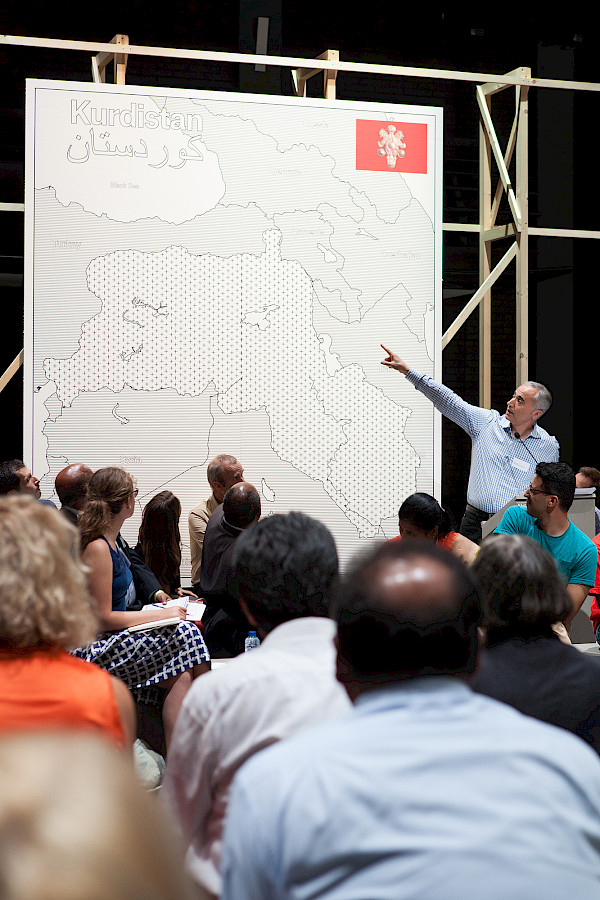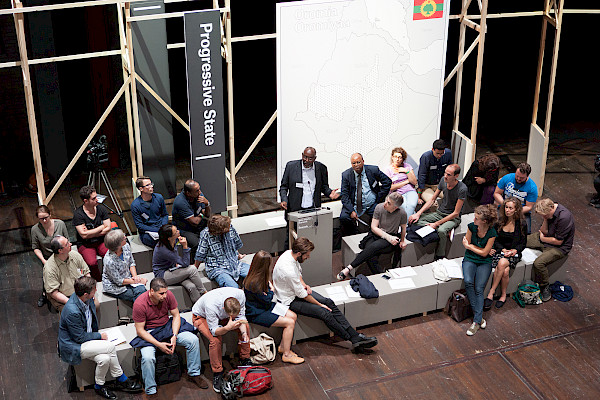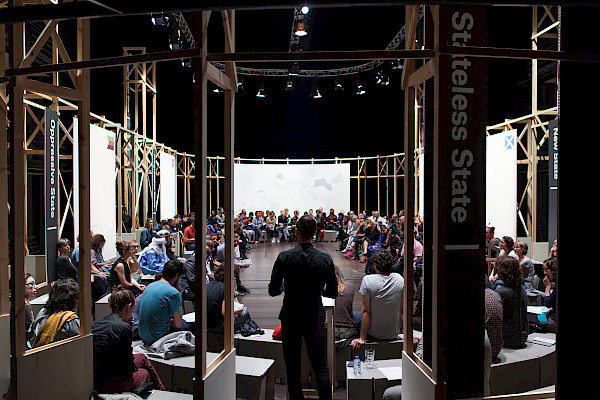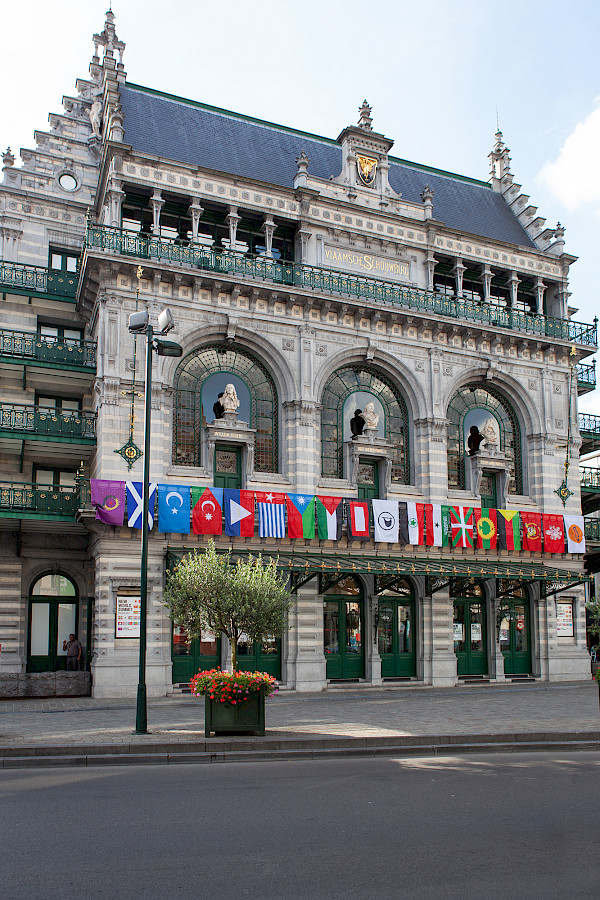New World Summit–Brussels
2014
September 19-21, 2014
Royal Flemish Theater, Brussels, Belgium
The New World Summit is an artistic and political organization that develops parliaments with and for stateless states, autonomist groups, and blacklisted political organizations. The central question to the fourth summit, entitled Stateless State, was to what extent the concept of the state is still capable of representing and protecting a peoples’ right to self-determination in the 21st century.
The city of Brussels embodies the crisis of the state. It is the site of an ongoing conflict over the existence of Belgium as a federal state as well the declining supranational project of the European Union. The rise of ultranationalism, which considers the EU to be a threat, calls for a return to the nation-state as the only way to regain sovereignty, control migration, and secure economic prosperity. At the same time, this myth of the sovereign state itself has been dismantled through, for example, whistleblowers’ recent revelations of global systems of mass surveillance. It is in the light of the crisis of the state that we are witnessing the rise of international protests and social movements. The attack of the state against its own citizens, through mass surveillance and politics of blacklisting, indicates that today’s condition of statelessness is on the verge of becoming a collective one.
The visual design of the parliament departs from the form of an arena, in which a variety of alternative historiographies are introduced and debated. In collaboration with each of the participating organizations, maps were conceived that represent the specific territory and/or political model these organizations laid claim to. In a large alternative world map situated in the back of the parliament all of these “stateless states” were assembled as an “alternative world map:” not the world as it has been narrated by victors, but a world in the making through struggle.
During the three-day program, representatives of stateless organizations and “unrecognized” states discussed the meaning, potential, and obstacles that the state embodies today through five consecutive segments, titled Oppressive State, Progressive State, Global State, New State and Stateless State. Collectively, they narrated a history of the world according to the stateless. With contributions by Kariam Adbian (Ahwazi-Arab Alliance, Iran); Moussa Ag Assarid (National Liberation Movement of Azawad); Nasser Boladai (Baluchistan People's Party); Mohamoud Abdi Daar (Republic of Somaliland); Martin Gustav Dentlinger (Baster People of Rehoboth); Dilar Dirik (Kurdish Women's Movement); Rebecca Gomperts (Women on Waves); Birgitta Jónsdóttir (Pirate Party Iceland); Josu Juaristi (Euskal Herria Bildu); Rebiya Kadeer (World Uyghur Congress); Ayda Karimli (Southern Azerbaijan Alliance); Coni Ledesma (MAKIBAKA); Abdirahman Mahdi (Ogaden National Liberation Front); Natalie McGarry (Women for Independence, Scotland); Suthaharan Nadarajah (Tamil Eelam); Simon P. Sapioper (Republic of West-Papua); Adem Uzun (Kurdish National Congress); and moderation by: Jolle Demmers (Center for Conflict Studies, Utrecht University); Véronique Dudouet (Berghof Foundation); Jan Fermon (Progress Lawyers); Jan Goossens (Royal Flemish Theater); and Maria Hlavajova (BAK, basis voor actuele kunst Utrecht).
-
Project By:
Studio Jonas Staal
-
Project Team:
Jonas Staal (artist); Younes Bouadi (producer); Renée In der Maur (programmer and project coordinator); Paul Kuipers (architect); Remco van Bladel (graphic designer); Imara Limon (communication manager); Urok Shirhan (program editor); Rob Schröder and Gabriëlle Provaas (film makers); Ernie Buts (photographer); Suzie Hermán, Henry Procter, and Ferdi Speelman (project assistants)
-
Commissioned by:
Royal Flemish Theater (KVS), Brussels
-
Partners:
Royal Flemish Theater (KVS), Brussels (BE), Unrepresented Nations and Peoples Organization (UNPO), Brussels (BE), BAK, basis voor actuele kunst, Utrecht (NL)
-
Supported by:
Mondriaan Fund, Amsterdam (NL), Center for Visual Arts, Rotterdam (NL)
-
Publication:
